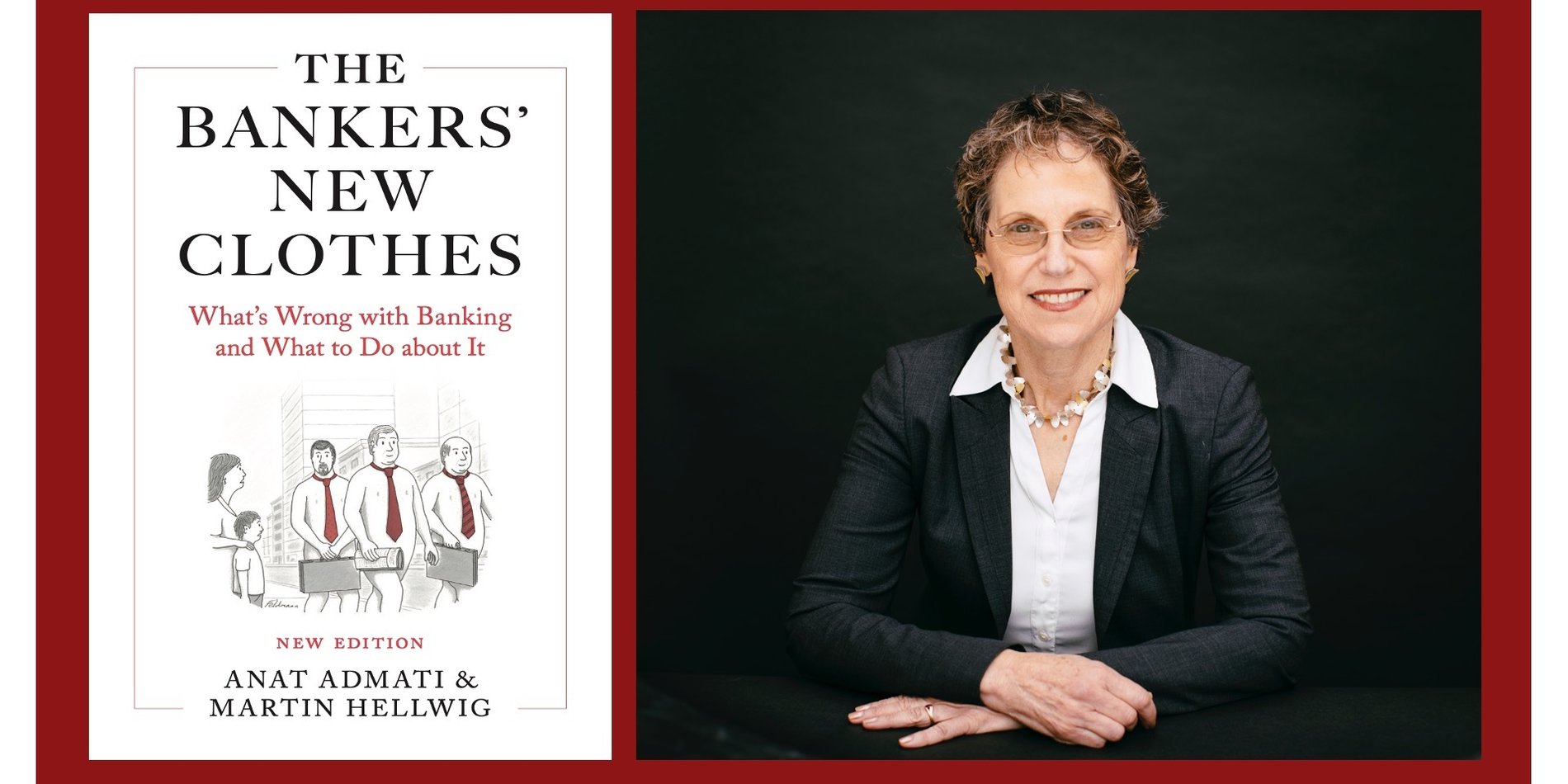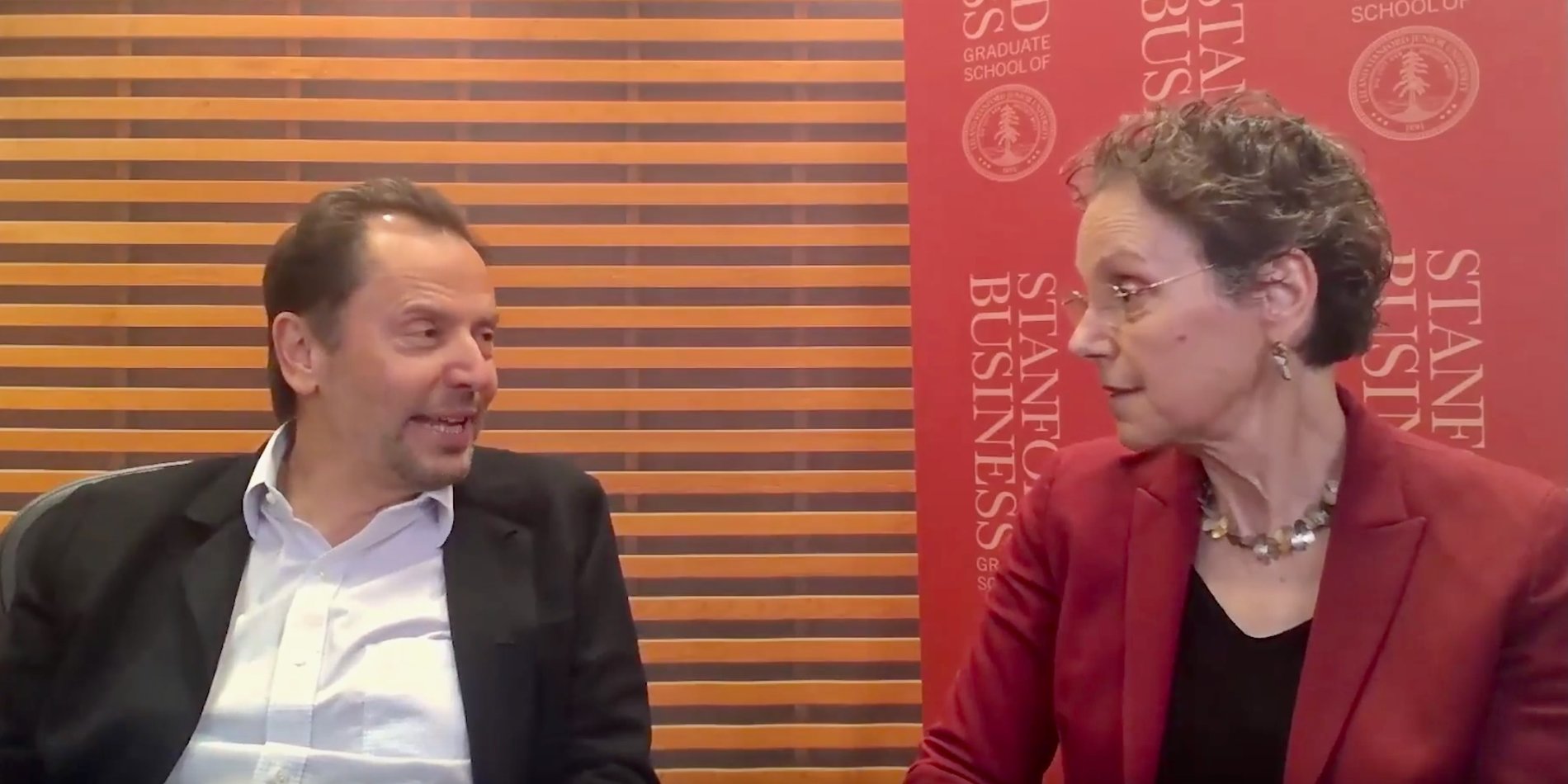Unions: A Blind Spot in Business Education Today
Watch the event:
According to a recent Gallop survey, support for labor unions in the U.S. is at a 57-year high. Yet, the newly re-charged labor movement gets little to no attention in business education. To counter this ‘blind spot’ and generate engagement on the topic, the Corporations and Society Initiative (CASI) at Stanford Graduate School of Business hosted a student-led discussion with political advisor and labor advocate Faiz Shakir.
In her opening remarks, co-faculty director Anat Admati noted that the April 25 event marked the second time in six months that CASI has focused its lens on the topic of unions. Last November, CASI hosted a labor panel discussion with union leaders and a National Labor Relations Board representative to talk about the pressing issues facing unions in the U.S. today. That panel session sparked greater interest to continue the conversation. Admati introduced the event’s moderator, CASI student leader Juan Saez, as someone with “a passion to understand unions better” and a desire to bring more attention to labor issues.
Saez began with an introduction of Faiz Shakir, highlighting his leadership roles in national political organizations and campaigns, and his current position as executive director of More Perfect Union. The nonprofit media organization publishes short-form videos, spotlighting workers in the frontline in today’s labor movements. The discussion kicked off with an examination of the top issues facing organized labor today.
Shakir pointed back to the COVID pandemic and what he called “a major turning point in our history and understanding of workers.” He said the problems that had been brewing in the workplace for years were sharply exposed during that time.
“There was a failure of management for decades to truly give a damn about the people who are delivering the productivity for their businesses,” he explained. People from the working class were “unseen, unheard, unappreciated” and their issues were not a part of the national conversation.
“And what has changed obviously is that the pandemic took a silent pain and suffering and slapped us all across the face and made you feel it.”
That shift in attitude was coupled with government action. Shakir credits the Biden Administration with engaging in the labor market and making sweeping changes. He pointed to the rise in the wage floor to $15 an hour for federal employees and employees working on federal contracts. He also mentioned the child tax credit, pandemic EBT cards, and the redirection of resources to the bottom 60-70% of America, most of whom “are living paycheck to paycheck.”
Coming out of the pandemic, Shakir said, the labor market has gotten stronger and created greater competition for workers. “The tables have turned a bit and so now we're reassessing what the labor market should be and can be.”
In the last two years, Shakir explained, a new approach to unionizing has emerged. Workers who want to organize don’t have to align with large, traditional unions like the United Auto Workers (UAW), the International Brotherhood of Teamsters, or the AFL-CIO.
“You can organize your Trader Joe's, you can organize your Starbucks, you can organize your Apple store and that has been a shot in the arm,” he said. “More and more people at this moment have power and feel empowered to go through a process to get a seat at the table [and] negotiate their working conditions, their wages, their benefits. And that's a great thing.”
Further questioning by Saez led to a discussion about the value of a union in the workplace. Shakir, saying he was mindful he was addressing a business school audience, offered a perspective that came from his own experience managing labor. He pointed to the challenge of communication in larger organizations and said many CEOs are completely cut off from their frontline workers. Unions, he believes, can be an important means of fostering conversation and building cohesion. All this helps ensure that management is made aware of important issues.
Saez brought up bottom-line-driven arguments made by business management, using Amazon as an example. “They've spent millions of dollars fighting unionization efforts over the past year and have largely won ever since the Staten Island Union effort succeeded,” he observed. “The $14.2 million spent by Amazon on anti-unionization campaigns and consultants in 2022 pales in comparison to the expected expense of meeting workers’ demands for fair working practices, better lifestyle, etc.”
“So why should for-profit corporations like Amazon seeking to maximize shareholder value behave any different?”
Shakir countered with what he sees as a fundamental question about social responsibility and caring for employees.
“As a large employer who is trying to build a workforce, do you see them as people who you respect and want to build an opportunity in life for, to grow into something that is sustainable?”
“The danger of where we live now with large corporations, [with] Walmart, Amazon, Kroger,” he said, “you have the biggest corporations in America who are telling all these millions of people, we don’t want you for more than a year, two years. Come and do the hard job. We’re going to grind you, but don’t stay because we don’t want to offer you any health care benefits.”
Shakir stressed that if corporate America won’t address the needs of workers, then it will become the government’s job, one where a minimum wage, paid sick leave, and childcare facilities will be mandated. Companies will also see more efforts to unionize. “They've chosen a war-like mentality, and they should be expecting the working class is going to fight back.”
Shakir stated that he sees government intervention as the only means to bring wide-scale social responsibility to corporate America. The reasons, he explained, are the strong incentives for CEOs to focus on profits and pursue what benefits the investor class most, even though it is often at the expense of the employees.
The government needs to change the structural rules by which corporations play and must institute policies that will benefit workers, such as childcare, paid sick leave, and a decent, livable wage. The government, he said, also needs to rein in corporate influence.
“I think the political power associated with these large corporations is immense. I see it every day in Washington, DC.”
Saez ended his questioning on a constructive note by asking Shakir for advice for the students.
“Fast forward 10 years and one of us in this room is the CEO of a Fortune 500 retailer,” he said. “For the first time in the company's history, one of our stores has voted to unionize. How should we respond in a way that can create a win-win situation for us?”
Shakir said the best approach is to welcome the opportunity to sit down and talk about the issues that are going on. He said to get the “damn lawyers out of the building” and to “work out how best to improve the workplace.”
“If you care about the organization, go talk to people who might have some issues with it. Make an assumption that the people organizing actually want this workplace to be better.”



